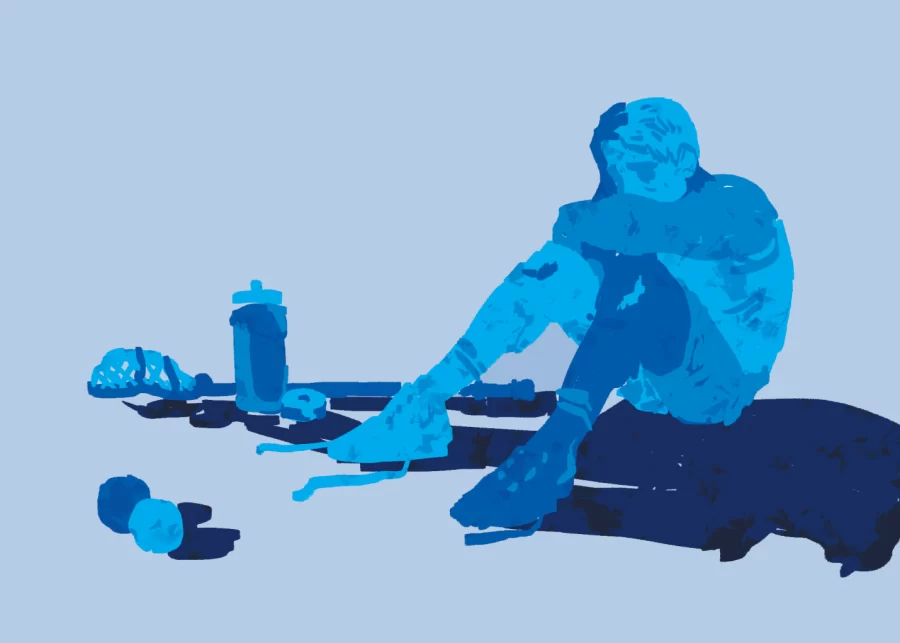To Play or Not to Play?
February 9, 2023
Sports are supposed to offer comfort and release, but when does the pressure to perform become too much?
For some student-athletes, sports provide an outlet that helps them destress. For others, sports are the leading cause of stress. Sports have many positive aspects, but how many student-athletes feel too overwhelmed by pressure to perform well to reap the benefits?
According to the NCSA – National Collegiate Scouting Association Athletic Recruiting, nearly eight million American high school students play one or more sports annually, with the totals steadily increasing, as watching and playing sports become more accessible to everyone.
Even though more people are participating in athletics, a study done by Northeastern “[indicates] that 95% of male and 85% of female athletes report higher stress [levels] compared to [the] 52% of non-athlete students.”
At the same time, students who routinely engage in a physical activity report less stress than those who do not. According to Ohio University, teens who exercise regularly report decreased stress levels, and 20% of their stressed teenagers reported that they only exercise once a week.
The key difference between the Northeastern study and the Ohio University study is that one covers the “sports” aspect, while the latter covers the “exercise” aspect, posing the question: Why do most students feel stressed by playing sports, but feel content exercising?
For one, sports have the additional factors of teammates, coaches, and over-involved parents. While exercise is the basis of sports, it is proven to raise various levels of “happy hormones”. This includes hormones like endorphins, and higher levels of endorphins lead to a lower likelihood of stress, anxiety, depression, and suicidal behavior. However, sports are not simply just physical exertion. The problem arises when sports become intertwined with one’s personal life, friends, and family as well as defining characteristics of success.
Furthermore, mental health and its relationship with sports – especially to high school athletes – is not discussed enough. There is a stigma around the complicated relationship between the two, and it needs to be destroyed.
An anonymous survey to the SLS Upper School asked questions about how sports affect students’ mental health. The students were asked how many sports they play, if they play one outside of school, if they are trying to get recruited, their stress level, and 65 people responded, and if you would like to see the results, click here.
There is an evident correlation between the number of sports played, sports played outside of school, and the amount of stress students feel. According to the survey, 61% of SLS athletes play more than one sport, 73% play outside of school, and have anxiety. For instance, the kids who play sports outside of school consistently had higher amounts of stress. The outside sports-playing students reported stress levels ranging from 5-9 (on a one to ten scale).
Some data relate college recruiting and stress. Of the 58.4% of students who answered they might get recruited for college, 85% said they had at least level 5 stress, on a scale of one to ten. Normally, a good motivating level of stress would be around a 3. This connects to the next point: What are the leading causes of stress?
According to the survey, the top six sport-related stressors are – in ascending order – parental pressure, pressure from teammates, pressure from coaches, college recruiting, being in the right shape, time management, and, with an overwhelming amount of responses, self-pressure.
Also according to the survey, sports-related stressors result in heightened anxiety and depression, body dysmorphia, and lack of physical health. For more data, see the attached chart. If people do not begin to focus on the well-being of student athletes, our students will start feeling the detrimental effects.
To summarize, for students to best perform athletically and intellectually, we as a community must reach out and support our athletes. Otherwise, what will become of the sports community we love today?



